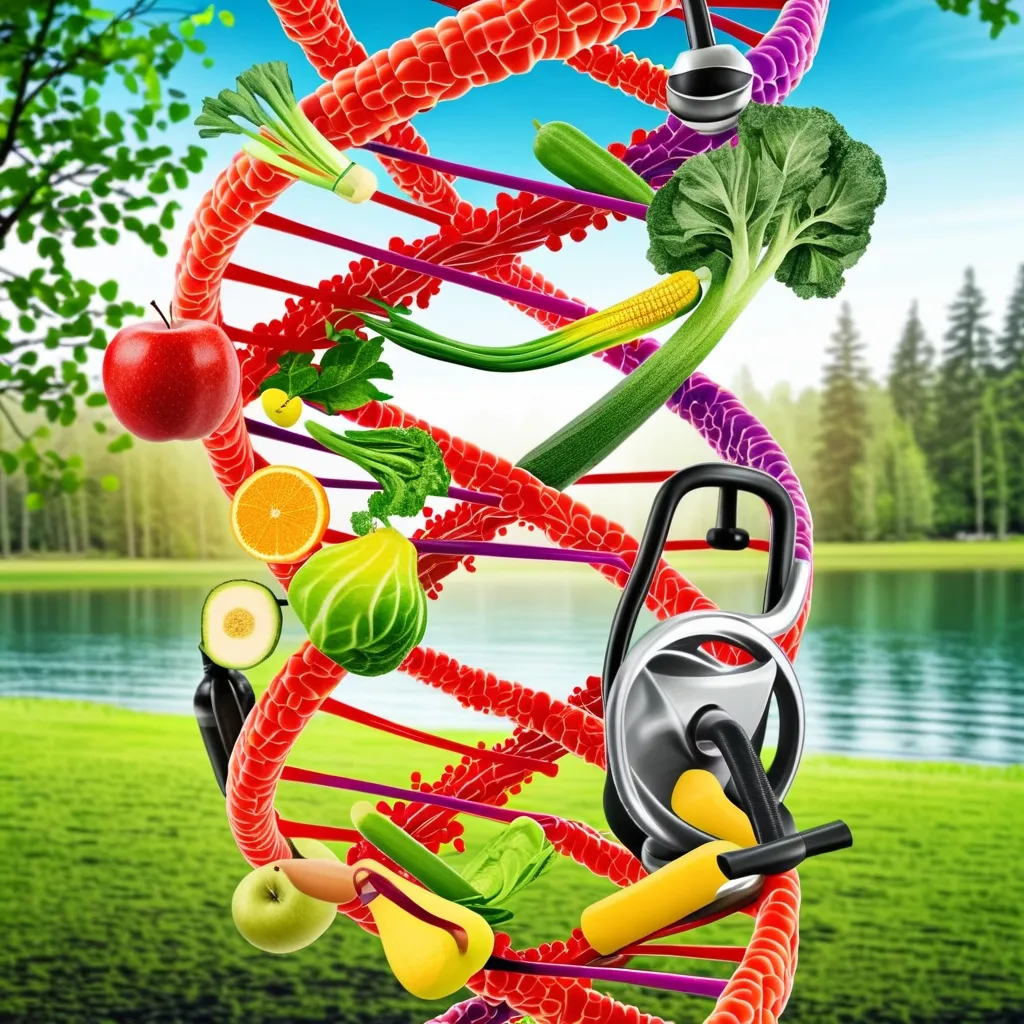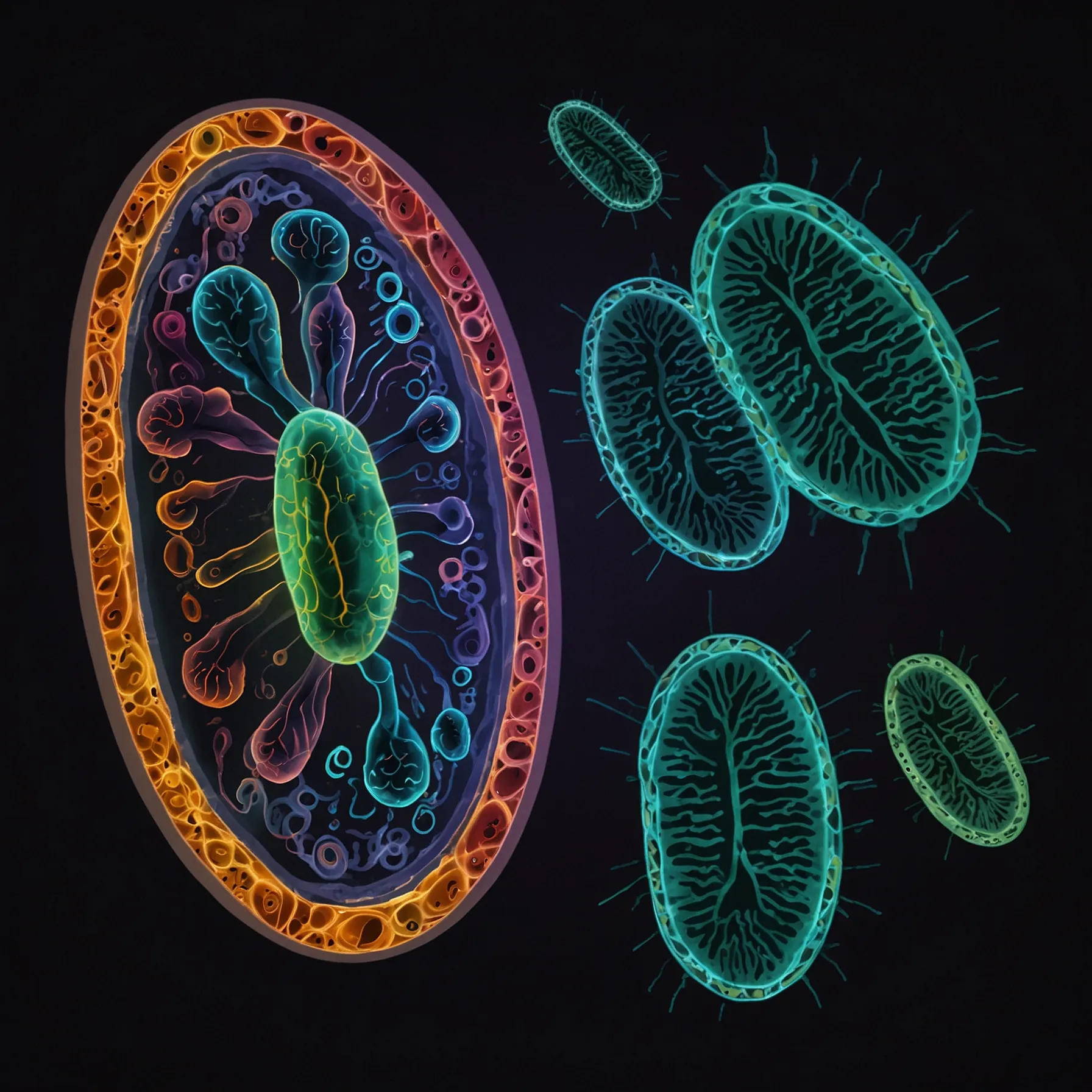Unlocking Your Genetic Potential: How Lifestyle Choices Shape Your Health
We often think our genes are set in stone, determining our health destiny from birth. But what if I told you that you have more control over your genetic expression than you ever imagined? Welcome to the fascinating world of epigenetics, where your daily choices can literally turn genes on and off, influencing your health in profound ways.
Epigenetics is like the software that runs on your genetic hardware. It’s all about how your lifestyle decisions impact the way your genes behave, without actually changing your DNA sequence. Think of it as a biological light switch - your genes are the bulbs, and your lifestyle choices determine which ones light up.
Let’s talk food for a moment. You know that satisfying crunch when you bite into a crisp apple or the burst of flavor from a ripe tomato? Well, those foods aren’t just delighting your taste buds - they’re sending signals to your genes. A diet rich in colorful fruits and veggies is like a love letter to your DNA, encouraging it to express itself in ways that promote health and longevity.
On the flip side, that greasy burger and fries might taste good in the moment, but they’re essentially shouting at your genes to behave badly. Too much of the wrong foods can lead to inflammation and oxidative stress, messing with your gene expression in ways that might increase your risk of chronic diseases.
But don’t worry, you don’t have to become a salad-munching health nut to reap the benefits of epigenetics. Even small changes can make a big difference. Maybe swap out that afternoon soda for a refreshing glass of water with a squeeze of lemon. Your genes will thank you for it.
Now, let’s get moving! Exercise isn’t just about building muscle or losing weight - it’s a powerful tool for influencing your epigenetic landscape. When you lace up those sneakers and go for a jog, you’re not just burning calories. You’re actually changing the way your genes behave, particularly in your fat tissue.
Regular physical activity can lead to changes in DNA methylation - a process that affects how your genes are expressed. It’s like giving your genes a good workout, encouraging them to behave in ways that protect against heart disease, diabetes, and even some types of cancer.
And here’s a cool fact: exercise doesn’t just affect the genes in your muscles and fat tissue. It also has a big impact on your gut microbiome - that bustling community of bacteria living in your digestive system. A healthy gut microbiome is crucial for overall health and plays a significant role in regulating your genes.
So, the next time you’re debating whether to hit the gym or binge-watch another Netflix series, remember: your couch potato genes might be begging for a workout!
Speaking of relaxation, let’s chat about stress and sleep. In our fast-paced world, it’s easy to brush off stress as just a part of life. But chronic stress can wreak havoc on your epigenetic health. It’s like constantly revving your car engine - eventually, something’s going to wear out.
High levels of chronic stress can increase DNA methylation of genes responsible for regulating your stress response. In plain English? Too much stress can make you even more susceptible to stress in the future. It’s a vicious cycle that can lead to all sorts of health issues.
And don’t even get me started on sleep! Skimping on shut-eye isn’t just making you grumpy - it’s disrupting your body’s entire epigenetic state. Poor sleep can increase your risk of everything from heart problems to mental health issues.
But here’s the good news: simple relaxation techniques like deep breathing, meditation, or even just taking a leisurely walk can help mitigate these negative effects. And prioritizing good sleep hygiene - like sticking to a consistent sleep schedule and creating a relaxing bedtime routine - can work wonders for your epigenetic health.
Now, let’s talk about the world around us. Our environment plays a huge role in shaping our epigenetic landscape. The air we breathe, the water we drink, and even the products we use on our skin can all influence how our genes behave.
For example, smoking isn’t just bad for your lungs - it can lead to a wide range of epigenetic alterations associated with various diseases. And it’s not just about personal choices. Exposure to environmental pollutants can also impact our epigenetic health, even if we’re not directly responsible for them.
But don’t feel overwhelmed! While we can’t control everything in our environment, we can make conscious choices to reduce our exposure to harmful substances. Maybe that means choosing organic produce when possible, using natural cleaning products, or simply spending more time in nature.
Now, let’s dive into the fascinating world of the microbiome. Remember those trillions of bacteria living in your gut? They’re not just passive passengers - they’re active participants in your health, influencing how your genes are expressed.
A healthy microbiome, supported by a balanced diet, regular exercise, and adequate sleep, can help maintain positive epigenetic changes. It’s like having a team of tiny personal trainers for your genes, encouraging them to behave in ways that promote health and well-being.
On the flip side, an imbalanced microbiome (known as dysbiosis) can lead to negative epigenetic alterations and increased risk of diseases. So, taking care of your gut health isn’t just about avoiding tummy troubles - it’s about supporting your overall epigenetic health.
Here’s where things get really exciting: the concept of personalized nutrition. We’re all unique, and our bodies respond differently to dietary challenges due to genetic and epigenetic variations. What works for your best friend might not work for you.
This is where the future of nutrition is heading - tailored dietary advice based on your individual genetic and epigenetic profile. Imagine a world where your doctor can recommend a specific diet that’s optimized for your unique genetic makeup. We’re not quite there yet, but the field of nutrigenomics is making exciting progress in this direction.
So, what does all this mean for you? It means you have more power over your health than you might have realized. Your genes aren’t your destiny - they’re more like a blueprint that can be interpreted in different ways depending on the choices you make.
Every time you choose a nutritious meal over fast food, lace up your sneakers for a workout, practice stress-reduction techniques, or prioritize a good night’s sleep, you’re influencing your genetic expression in positive ways. You’re not just making a lifestyle choice - you’re literally shaping your genetic destiny.
But here’s the thing: it’s not about perfection. You don’t have to overhaul your entire life overnight. Small, consistent changes can add up to big results over time. Maybe start by adding an extra serving of vegetables to your dinner plate, or taking a short walk during your lunch break. Every positive choice is a step towards better epigenetic health.
Remember, your body is incredibly resilient and responsive. It’s never too late to start making positive changes. Whether you’re in your 20s or your 70s, your genes are listening and ready to respond to the signals you send them through your lifestyle choices.
So, the next time you’re faced with a choice about what to eat, whether to exercise, or how to manage stress, remember: you’re not just making a decision for today. You’re influencing your genetic expression and shaping your health for years to come. It’s a powerful responsibility, but also an incredible opportunity.
Your genes are waiting. What choices will you make today?






